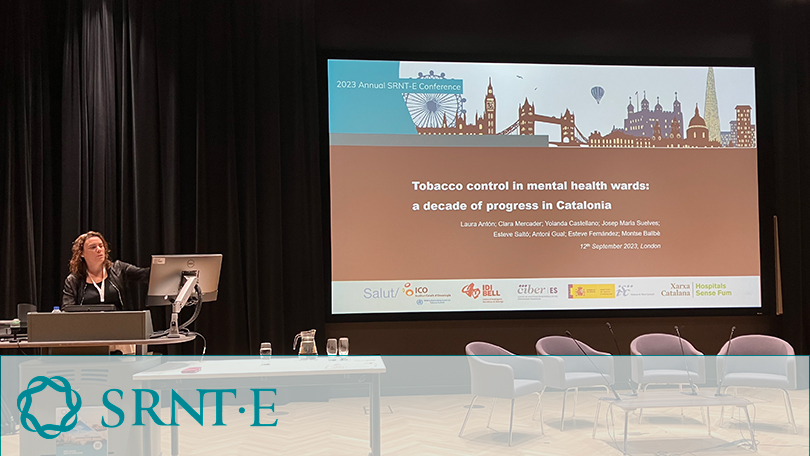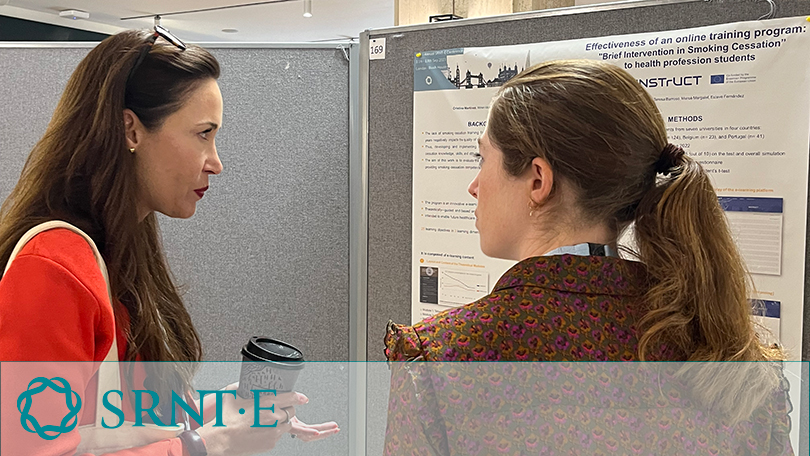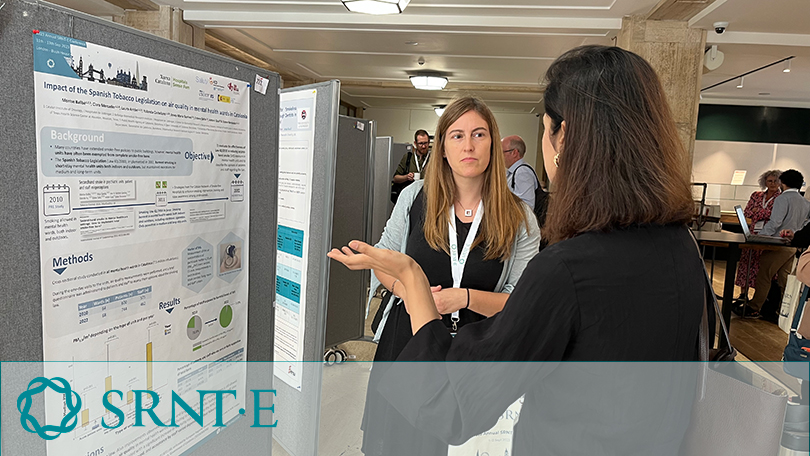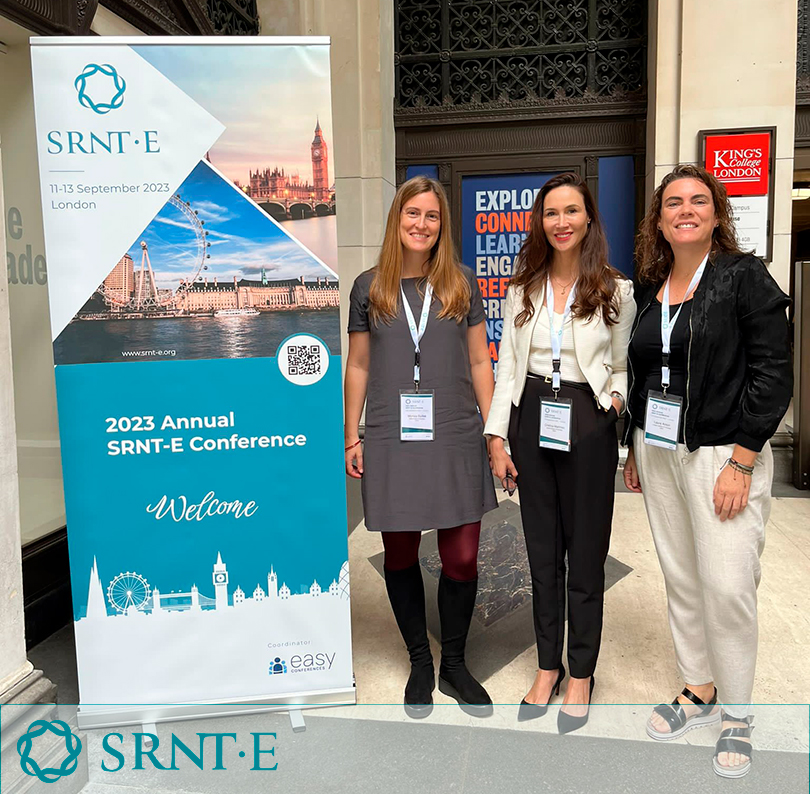The UCT participates in the 2023 SRNT-Europe Conference
The Tobacco Control Unit actively participated in the 2023 SRNT-Europe Conference (The Society for Research on Nicotine & Tobacco – Europe), held in London from September 11 to 13. These three days were filled with symposiums, talks, posters, and debates focused on research on nicotine and tobacco.
At this congress, results were presented on the role of the electronic cigarette in smoking cessation through a meta-analysis that shows its effectiveness in quitting smoking. These findings intensified the debate over e-cigarettes and further polarized opinions within the scientific community. Some people consider electronic cigarettes as a potential solution to help quit smoking combustible cigarettes, while others view them as a new threat that can sustain and proliferate nicotine addiction at the population level. This debate has generated various perspectives that have led to the implementation of different strategies for their regulation and control, both at a scientific level and by national public health agencies.
On the other hand, there was a strong emphasis on addressing smoking in special vulnerable populations, such as the homeless or people suffering from diseases such as AIDS or mental illnesses, among others. These populations often have higher rates of tobacco use.
Beyond the research focused on electronic cigarettes, the Tobacco Control Unit was represented by three of its members who attended and presented several works, including two poster presentations and one oral presentation.
Dr. Montse Ballbè presented the results of the TCAT-sm project, which analyzes the impact of the Spanish tobacco law on improving the air quality of mental health units in Catalonia. This study objectively analyzes passive exposure to environmental tobacco smoke in mental health facilities before and after the prohibition of tobacco consumption within these units, thereby mitigating the long-term mortality risk for patients and professionals.
As a result of the same study, Ms. Laura Antón presented the differences in the pattern of tobacco consumption between patients and professionals in mental health units over the last 10 years through an oral presentation. This comparison included the situation before and after the law regulating tobacco consumption in these units. The study also included the opinions of those responsible for these facilities regarding the implementation of tobacco control policies.
Finally, Dr. Cristina Martínez presented the results of the INSTrUCT educational project, which was tested in seven universities in four European countries. The designed training, consisting of interactive modules, videos, and virtual simulations, has shown that 86% of students acquire the theoretical and practical competence to offer assistance in quitting smoking. In addition to the scientific aspects, we cannot forget that this was the first in-person conference of the SRNT-E congress after the pandemic. There was great anticipation and a strong desire to exchange knowledge, meet colleagues, and make new acquaintances, both on the part of the organizers and the attendees.









No Comment